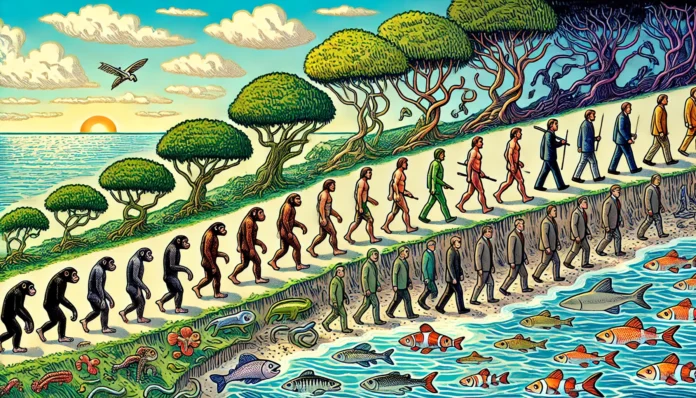Introduction
The debate between evolution and creationism remains one of the most persistent and contentious issues in American science education. Despite overwhelming scientific consensus supporting evolutionary theory, efforts to challenge or undermine its teaching in schools continue to surface across the United States. This ongoing battle not only shapes public discourse but also has profound implications for the future of evidence-based education and scientific literacy.
The Roots of the Conflict
At the heart of the evolution versus creationism debate lies a fundamental clash between scientific inquiry and religious belief. Evolution, first articulated by Charles Darwin in the 19th century, is supported by a vast body of evidence from fields such as genetics, paleontology, and molecular biology. In contrast, creationism—particularly in its young-Earth and intelligent design forms—derives from literal interpretations of religious texts, most notably the Book of Genesis.
While the U.S. Supreme Court has repeatedly ruled against the teaching of creationism and intelligent design in public schools (National Center for Science Education), the controversy endures. According to a 2021 Pew Research Center report, a significant portion of Americans still express skepticism about evolution, with many favoring the inclusion of creationist perspectives in science curricula.
Recent Attempts to Undermine Evolution Education
In recent years, several states have witnessed renewed efforts to challenge the teaching of evolution. For example, in 2023, lawmakers in states such as Oklahoma and South Carolina introduced bills that would allow teachers to present “alternatives” to evolution, often under the guise of promoting academic freedom. These legislative attempts echo earlier strategies used by creationist advocates, who have sought to rebrand their views as “intelligent design” or “critical analysis of evolution” to circumvent legal restrictions (NCSE: Legislation).
Such measures are not isolated incidents. The National Center for Science Education (NCSE) regularly tracks and responds to attempts to dilute or distort science standards in public schools. In 2024, the NCSE reported a spike in proposed bills targeting evolution and climate change education, reflecting a broader trend of politicizing science in the classroom.
The Scientific Consensus on Evolution
The scientific community is virtually unanimous in its support for evolution as the best explanation for the diversity of life on Earth. The theory of evolution is not a matter of opinion or belief; it is a robust, evidence-based framework that has withstood more than a century of rigorous testing and refinement. Major scientific organizations, including the National Academies of Sciences, Engineering, and Medicine and the American Association for the Advancement of Science, unequivocally endorse the teaching of evolution in schools.
Genetic research, fossil discoveries, and advances in developmental biology have all reinforced the validity of evolutionary theory. For instance, the mapping of the human genome has revealed striking genetic similarities among all living organisms, providing powerful evidence for common ancestry. As the journal Nature notes, the predictive power of evolutionary theory continues to drive breakthroughs in medicine, agriculture, and environmental science.
Why Defending Science Education Matters
The stakes in the evolution versus creationism debate extend far beyond the classroom. Science education is foundational to a well-informed, critically thinking society. When religious ideology is allowed to dictate science curricula, students are deprived of the tools they need to understand the natural world and participate in a global economy driven by scientific innovation.
Moreover, undermining evolution education can have ripple effects on public understanding of other scientific issues, such as climate change and vaccine safety. As the NCSE emphasizes, defending evidence-based science education is essential for fostering scientific literacy and preparing students to tackle the complex challenges of the 21st century.
The Role of Advocacy and Public Engagement
Organizations like the National Center for Science Education play a crucial role in monitoring legislative developments, supporting teachers, and providing resources to counter misinformation. Grassroots advocacy, public awareness campaigns, and legal challenges have all proven effective in safeguarding the integrity of science education.
Parents, educators, and concerned citizens can make a difference by staying informed, engaging with school boards, and advocating for strong science standards. The Pew Research Center highlights the importance of public opinion in shaping education policy, underscoring the need for continued vigilance and activism.
Looking Ahead
As the battle over evolution and creationism continues, the outcome will have lasting consequences for American education and society at large. The defense of evidence-based science education is not merely an academic issue—it is a vital component of a rational, progressive, and informed democracy. By championing the teaching of evolution and resisting efforts to inject religious dogma into science classrooms, we can help ensure that future generations are equipped with the knowledge and critical thinking skills they need to thrive in an increasingly complex world.

